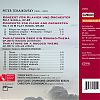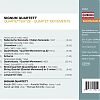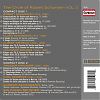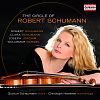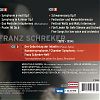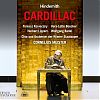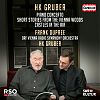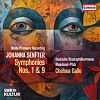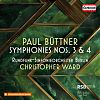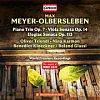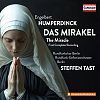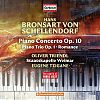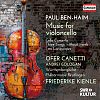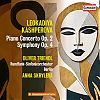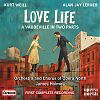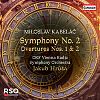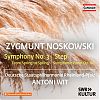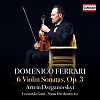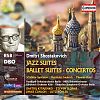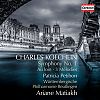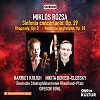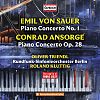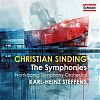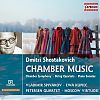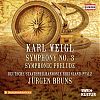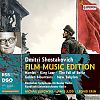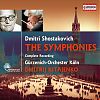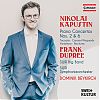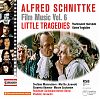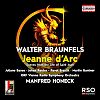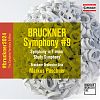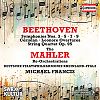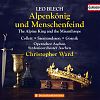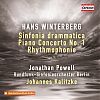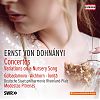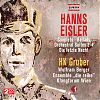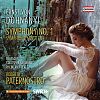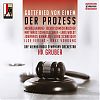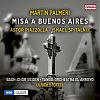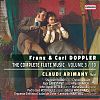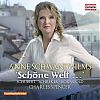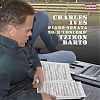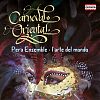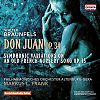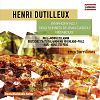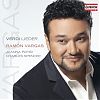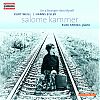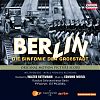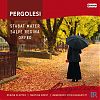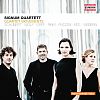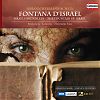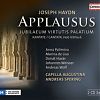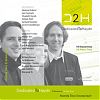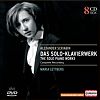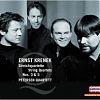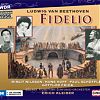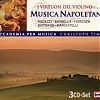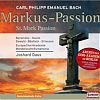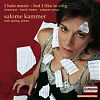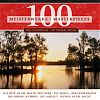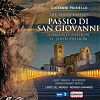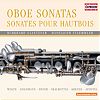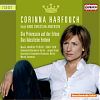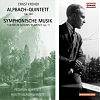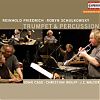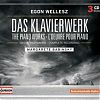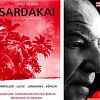cd

TCHAIKOVSKY
TZIMON BARTO · DIMITRI MASLENNIKOV · Deutsches Symphonie-Orchester Berlin · CHRISTOPH ESCHENBACH
One of the most famous piano concertos is now released in a complete new production: World famous pianist TZIMON BARTO worked together with no less a person than his pianist colleague and conductor CHRISTOPH ESCHENBACH. Both of them show us a very new and exciting version of the score which we never listend before. After the final concert of this production at the Berliner Philharmonie the audience and the press reviews has been very enthusiastic.
The young Dimitri Maslennikov – one of Christoph Eschenbachs talent discovery –
finish this CD with the famous Rococo Variations by Peter Tchaikovsky.
Weitere Bilder

SIGNUM QUARTETT - Quartet Movements
SCHUBERT: Quartet Movement D 703 · WOLF: Italian Serenade
PUCCINI: Crisantemi · ORFF: Quartet Movement op.22 · WEBERN: Langsamer Satz · RIHM: Quartet Movement · IVES: Scherzo
In a single Phrase – Quartet Movements between Attempt and Perfection
Arnold Schönberg once remarked on his student Anton von Webern that he was able to “express an entire novel with a single gesture”. In doing so, the composer arrived at the maximal condensation of expression through small dimensioned designs.
Hugo Wolf composed his one-movement serenade for string quartet within three days and Giacomo Puccini wrote a melancholic quartet movement in C sharp minor in a single night as he claimed himself. With this interesting Edition of musical fragments and Quartet Movements which found their ways to the concert schedules worldwide, the young SIGNUM QUARTET presents his second album after the successful release of the recording of String Quartets by Ludwig Thuille (Capriccio C5049). Again with a wide range dynamic and fresh performance.
Weitere Bilder

The Circle Of Robert Schumann - Vol.2
GUDRUN SCHAUMANN, violin · WOLFGANG BRUNNER, fortepiano
After the first release of works by Robert Schumann and his creative contemporaries, Gudrun Schaumann presents – after a lot of research – her second album with most interesting compositions from the environment of the famous composer.
The works by THEODOR KIRCHNER and CARL REINICKE are World Premiere Recordings and fascinating pieces like the Schumann Arrangements made by JOSEPH JOACHIM.
Gudrun Schaumann, Violine / violin (by Antonio Stradivari, Cremona 1731)
Wolfgang Brunner, Hammerflügel / fortepiano (by J.B. Streicher, 1836 etc.)
Weitere Bilder

DAS WEIB DES INTAPHERNES
Gerd Westphal · WDR Rundfunkorchester Köln · Peter Gülke u.a.
Der Geburstag der Infantin (Piano Suite) · Symphonie op.1 · Festwalzer und Walzerintermezzo · Ein Tanzspiel etc.
The present first recordings do not document the Schreker of „impressionistic" intoxication with colour and passionate Italianate cantilenas as in Die Gezeichneten. Here it is a matter of the „unknown Schreker" – the corner-points,
35 years apart, of his output, the whence and whither of a composer who already in his twenties saw himself branded as „begetter of musical narcotics" and whose name still evoked, for many people, „art nouveau of some kind".
Franz Schreker's last completed dramatic composition is the melodrama Das
Weib des Intaphernes, composed on a ballad by Eduard Stucken in 1932/33 in Estoril, near Lisbon, and in Berlin; Once more the sure hand of the dramatist in masterly control of his means is shown; with a few concise motives he creates cohesion of form, and can employ a simple triadic motive as certainly as an inscrutably rugged atonal fugato.
Weitere Bilder

lyric - ORCHESTRAL SONGS
Orchestral Songs by: Mahler · Wolf · Zemlinsky · Schreker
Not only a celebration of distinguished voices: This 2CD-album of recordings taken from the legendary Capriccio-Archive joins some of the world’s leading singers together and simultaneously presents a broad repertoire of known and unknown songs for orchestra as well as some songs yet to be discovered.
Besides the Rückert-Lieder and the Lieder eines fahrenden Gesellen by GUSTAV MAHLER, also the Symphonischen Gesänge op.20 by ALEXANDER ZEMLINSKY, the 5 Gesänge für tiefe Stimme by FRANZ SCHRECKER and HUGO WOLF’s 5 Orchesterlieder are assembled on this recording, as are the hitherto little known musical versions of lyrics by EGON WELLESZ and ERNST BLOCH.
Renowned conductors such as CHRISTOPH ESCHENBACH, GERD ALBRECHT or GARY BERTINI guarantee the quality of the artistic realisation of these complex scores.


